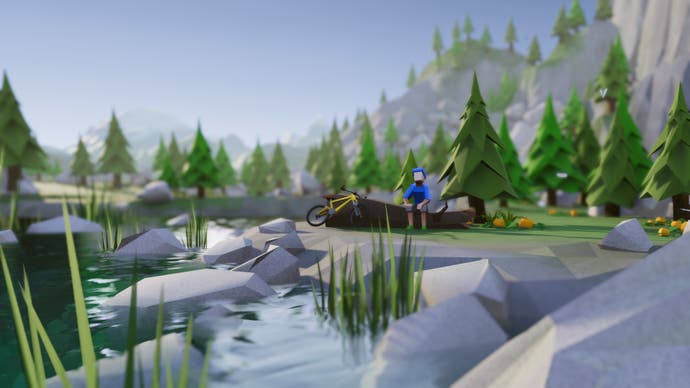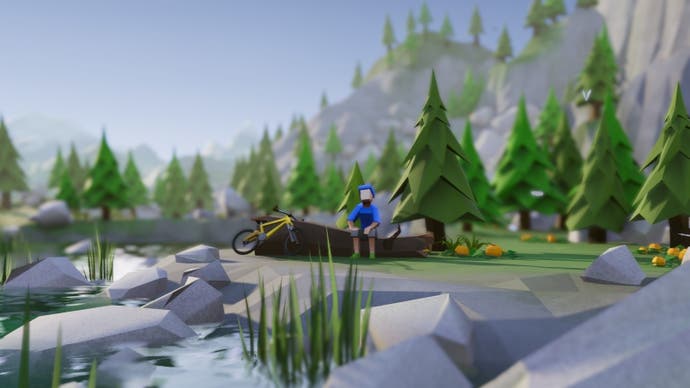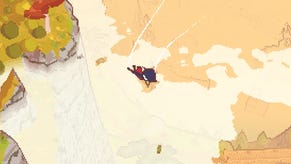Games of the Year 2019: Lonely Mountains: Downhill is a magic game of pure sensation
Range against the machine.
Over the festive break we'll be running through our top 20 picks of the year's best games, leading up to the reveal of Eurogamer's game of the year on New Year's Eve. You can find all the pieces published to date here - and thanks for joining us throughout the year!
Sometimes, playing Lonely Mountains: Downhill, I can't help but think the aim of the game is to stop playing it. On the surface this is a game about going downhill fast, about beating the clock, cutting corners, sprinting. The race to the finish often ends in a rush of relief, above all, that you've made it there intact. And then at the same time it's the absolute opposite: tranquility, calm, an invitation to stay a while and just listen. At once you're baited into crashing through it and challenged into slowing down for a ponder.

I could, honestly, leave it there. Lonely Mountains' tug-of-war between styles of play is enough in itself, the game a clever little buried lede of one kinetic, mechanical thing on the surface (timers, challenges, sprint buttons, checkpoints) and another, more contemplative, just beneath (crunching leaves, branching paths, hidden oases with fallen trunks to sit on and views to be quietly taken in). But there is so, so much more going on here. Lonely Mountains is, above all, a game about experience - about the act of experiencing, in fact - and played through that lens it's not just clever, it's divine.
There is no game I'd have rather been in, this year, than Lonely Mountains: Downhill. "In" as in playing, feeling, absorbed into. Playing it is waking up. Breathing, freely, as if for the first time. It's a magic game, conjuring a sense of life from what looks like trees of folded paper, rocks made real from crinkled blankets. At times I've felt more connected to the world of this game than my own.
It does that through feeling, and feeling in the simplest and purest sense. Take a corner. Watch as your little cyclist stretches on approach, before braking, compressing and constricting, winding like a spring. The bike feels like it sags, just a little, under the compounding weight, and then: bang! Out of the turn. Expansion and momentum, pure kinetic energy, pure rhythm of natural force.
This is what it feels like, here in reality, to go down a hill at speed. It's a gauntlet wrestled in the mind: one of relinquishing it, submitting it to an exterior will and being willing, for just a moment, to simply allow yourself to float. For all the whizzing rocks and trees and stumps it's your own head, above all, that forms an obstacle. People throw themselves down mountains because they need, for whatever reason and for even just a fleeting moment, to force their mind out of the way. Lonely Mountains: Downhill gets it. It's a celebration of nature, obviously, but also one of pure experience and sensation, of direct, uninterrupted connection to the world. When it clicks - when you sling out of that corner, or swoop over a fading chasm, or just stop a moment to circle, spokes ticking and purring, twigs snapping, on a brief and mercifully level spot - it's a game that feels utterly unlike anything else. It feels like life.





